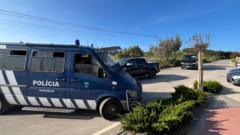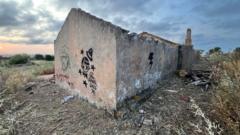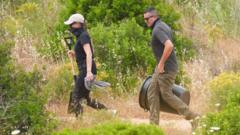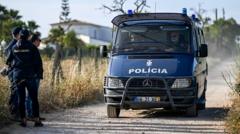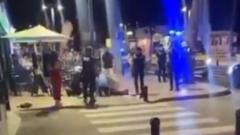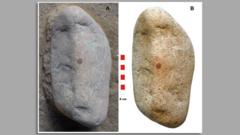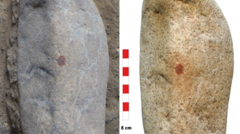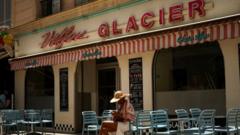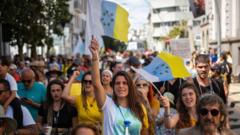From cash to communication, locals recount their experiences and insights from the unprecedented blackout.
**Surviving the Blackout: Key Tips From Citizens of Spain and Portugal**
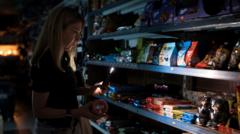
**Surviving the Blackout: Key Tips From Citizens of Spain and Portugal**
Citizens share essential items and tactics for coping during a massive power outage.
The power is out, and daily activities have ground to a halt. That was the reality for millions in Spain and Portugal during a historic blackout that left citizens scrambling to adapt. As people faced a day without electricity, many shared what essentials were critical for managing the power cut and what items they wished they had prepared in advance.
**Cash**
With card payments unavailable, cash quickly became a valuable commodity. In bustling cities like Madrid, long queues formed at functioning ATMs, as businesses reverted to cash-only transactions. "At first, we could pay with cards, but soon all we had was coinage," said Ed Rowe, 26. Others echoed his sentiments; having cash allowed them to easily purchase much-needed supplies amid the chaos. "Cash is king, especially during emergencies," noted Grace O'Leary, age 32.
**Wind-up Radio**
As communication channels went dark, access to information became critical. For families like the Buschschlüters who live outside the capital, an old wind-up radio became a lifeline. "We had to keep winding it, but it felt comforting to tune into local news," shared Christine, 82. The couple remembers the wartime days of their youth, emphasizing nostalgia's role during moments of uncertainty. The power outage highlighted the need for battery-operated alternatives, such as handheld radios.
**Non-perishable Foods**
When cooking appliances went offline, citizens turned to non-perishable foods for sustenance. The supermarket scenes mirrored the panic-buying vibes of recent crises, as consumers sought out items that could be stored long-term. "We stocked up on canned goods, knowing they wouldn't spoil," commented actor Jaime Giorgio, who spent hours navigating the grocery aisles. "All we could manage for dinner was the basics like ham and cheese," stated Lesley Elder, acknowledging the difficulty of finding satisfactory heat-free meals.
**Candles and Torches**
The absence of electric lighting left many in complete darkness. People resorted to candles, which provided both light and warmth. "Streetlights were non-existent, and navigating the area by torchlight felt surreal," said Richard from Alcalá de Henares. For some, candles even became makeshift stoves for quick meal preparation, with Sarah Baxter leveraging her stove safely indoors.
**Power Banks**
With no electricity to recharge devices, power banks became essential for staying connected. Tech shops saw lines of waiting customers hoping to grab portable chargers. "I had a solar charger that saved me from total disconnection," shared Sarah, reflecting on the day’s challenges. Yet, for some, the blackout served as a prompt to disconnect from technology. "It was somewhat liberating not to rely on devices," mentioned Ed Rowe, who cherished the break from constant connectivity.
As the aftermath of the blackout continues to be felt, citizens are reminded of the importance of preparedness. Many express hope that lessons learned during this experience will inspire proactive measures for managing future outages.
**Cash**
With card payments unavailable, cash quickly became a valuable commodity. In bustling cities like Madrid, long queues formed at functioning ATMs, as businesses reverted to cash-only transactions. "At first, we could pay with cards, but soon all we had was coinage," said Ed Rowe, 26. Others echoed his sentiments; having cash allowed them to easily purchase much-needed supplies amid the chaos. "Cash is king, especially during emergencies," noted Grace O'Leary, age 32.
**Wind-up Radio**
As communication channels went dark, access to information became critical. For families like the Buschschlüters who live outside the capital, an old wind-up radio became a lifeline. "We had to keep winding it, but it felt comforting to tune into local news," shared Christine, 82. The couple remembers the wartime days of their youth, emphasizing nostalgia's role during moments of uncertainty. The power outage highlighted the need for battery-operated alternatives, such as handheld radios.
**Non-perishable Foods**
When cooking appliances went offline, citizens turned to non-perishable foods for sustenance. The supermarket scenes mirrored the panic-buying vibes of recent crises, as consumers sought out items that could be stored long-term. "We stocked up on canned goods, knowing they wouldn't spoil," commented actor Jaime Giorgio, who spent hours navigating the grocery aisles. "All we could manage for dinner was the basics like ham and cheese," stated Lesley Elder, acknowledging the difficulty of finding satisfactory heat-free meals.
**Candles and Torches**
The absence of electric lighting left many in complete darkness. People resorted to candles, which provided both light and warmth. "Streetlights were non-existent, and navigating the area by torchlight felt surreal," said Richard from Alcalá de Henares. For some, candles even became makeshift stoves for quick meal preparation, with Sarah Baxter leveraging her stove safely indoors.
**Power Banks**
With no electricity to recharge devices, power banks became essential for staying connected. Tech shops saw lines of waiting customers hoping to grab portable chargers. "I had a solar charger that saved me from total disconnection," shared Sarah, reflecting on the day’s challenges. Yet, for some, the blackout served as a prompt to disconnect from technology. "It was somewhat liberating not to rely on devices," mentioned Ed Rowe, who cherished the break from constant connectivity.
As the aftermath of the blackout continues to be felt, citizens are reminded of the importance of preparedness. Many express hope that lessons learned during this experience will inspire proactive measures for managing future outages.









